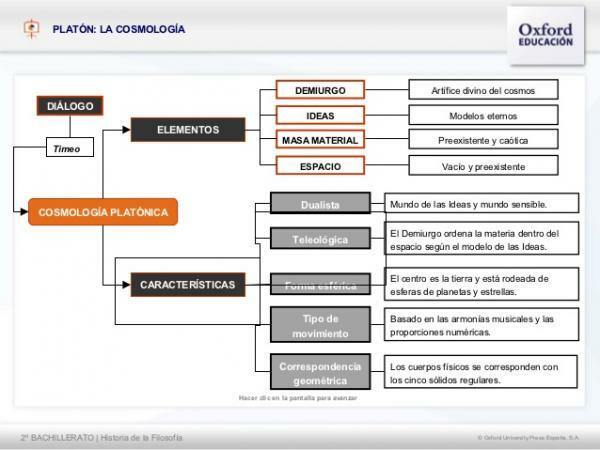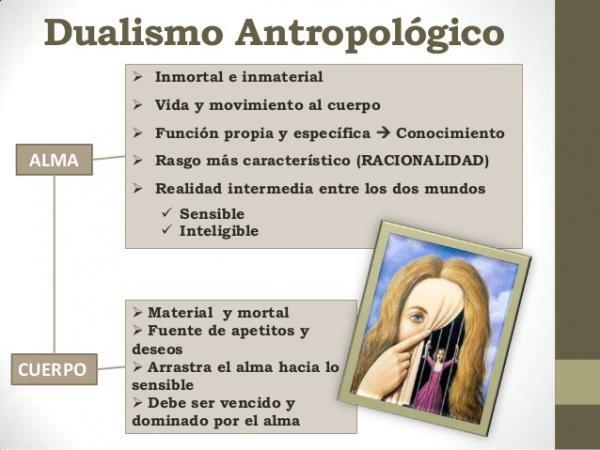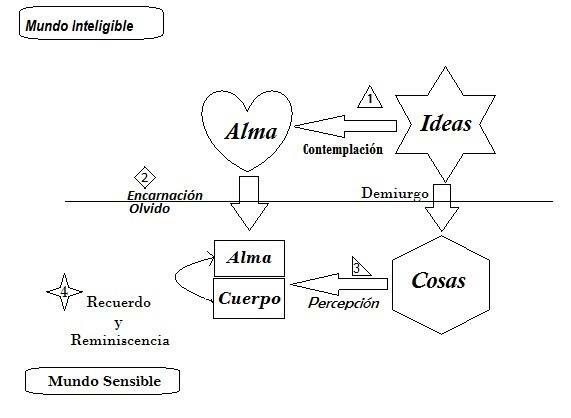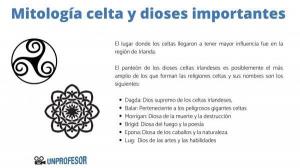Discover Plato's main ideas

Image: Blogs Herder Editorial
The Plato's philosophy (- 428 to - 347) takes place in an unstable political environment. Behind the Peloponnesian War, the democracy and the tyranny of the 30s, but a year later it is restored. On the other hand, there is the condemnation of his teacher, Socrates, which will significantly influence his thinking. The Republic, one of his best-known works, describes the philosopher's ideal City-State, a city (polis) divided into estates strongly separated social groups: the rulers, the warriors and the common people, made up of the merchants and the farmers. In this lesson from a TEACHER, we will look at the Plato's main ideas, Would you like to meet them? So, he continues reading this lesson.
Index
- The Theory of Ideas, one of Plato's main ideas
- Platonic cosmology
- Anthropology and psychology, another of Plato's ideas
- Plato's theory of knowledge
- Society and politics according to Plato
- Plato's Ethics
The Theory of Ideas, one of Plato's main ideas.
Plato defends the existence of two worlds or two dimensions in reality. On one side is the sensible world, the world of physical things, of change, of multiplicity and is subject to generation and corruption. Therefore, it is nothing more than mere appearance. It is the world of opinion and can be perceived through the senses. The visible world, as Plato sometimes calls it, is made by the Demiurge in the image of intelligible world, or world of ideas.
This is the only real world, incorruptible, immutable, the world of universal and necessary essences, of science. This world can only be known through reason, through a dialectical process. Plato resorts to Myth of the Cavern to describe this scenario. The Platonic division of the world is known as ontological dualism.
The philosopher establishes a hierarchy of Ideas, being the Idea of Good, the one that is in the highest point. At the lowest, you would find the ideas of physical things.

Image: es.slideshare.net
Platonic cosmology.
The Demiurge, is a good being that gives shape to matter and builds the sensible world (finalist or teleological conception of reality), in the image of the intelligible world, that is to say, it is nothing more than a copy of the latter. Although the world of ideas is the only one truly real, the physical world also has a certain reality, insofar as it participates in the real world or intelligible world.
The soul, which is immortal, has also been created by the Demiurge, and therefore, like physical things, participates in both worlds. Once the body has died, the soul will return to the world of Ideas.
Plato distinguishes 3 parts of the soul, and each of them has a virtue:
- The soul Rational. To this part corresponds the virtue of prudence.
- The soul Irascible. That the virtue of courage corresponds to him.
- The soul Concupiscible. It is the part that has to cultivate temperance.
The balance between the 3 parts of the soul is what the philosopher will call Justice, the highest virtue of all.
The subject of the soul will be dealt with at length by Plato in Phaedo, the Meno, the Phaedrus, the Timaeus and the Republic.

Image: Slideshare
Anthropology and psychology, another of Plato's ideas.
His ontological dualism is linked anthropological dualism, since Plato affirms that in the human being there are also two parts: the body, and the soul. The body, belongs to the sensible world and it is the corruptible part. The soul is the immortal part, which lives in the body because it has fallen from the world of ideas, but with the death of the body it will return to it.
Because it already inhabited the intelligible world, the soul knows ideas, and therefore, knowing is remembering (Reminiscence Theory).

Image: Slideshare
Plato's theory of knowledge.
Plato's Theory of Reminiscence predates the Theory of Ideas and Plato explains it in the Meno and later in the Phaedo. According to this theory, knowing is remembering, since the soul already knows the ideas, since it has been in contact with the intelligible world. What happens is that he has forgotten them by falling into the physical world.
But from book VII of the RepublicPlato offers a dialectical explanation of knowledge, based on the Theory of Ideas and the division of reality. In establishing this division, the philosopher also makes a difference between two types of knowledge: that of opinion or doxa (sensible knowledge) and true knowledge or episteme, who is the only one who can know the to be, the universal and necessary, the essences, of what does not change. The knowledge that can get to know the Ideas. For this explanation Plato will use the Simile of the Line.

Image: Wikipedia
Society and politics according to Plato.
In the Republic Plato will describe his ideal City-State, as well as the division into social classes. Thus, from the division of his soul, he also establishes the differences within the polis, the position of each citizen within it, that is, the most just.
- Rulers (rational soul, prudence)
- Warriors (irascible soul, courage)
- Craftsmen and peasants (Concupiscible soul, temperance)
Belonging to one or another social status is going to be determined by education, and not by family.
Plato's Ethics.
Fair, in order to PlatoIt is each one who takes care of what corresponds to him, that each one develops what he is called to be. Thus, in which the rational part predominates, the virtue of prudence corresponds to him and his function in the polis is that of govern. In those where courage predominates, the part of the irascible soul corresponds to city defense.
In the people, in which the concupiscible soul fundamentally dominates, he has to cultivate temperance to obey the laws. These will be the peasants, artisans and merchants.
If you want to read more articles similar to Plato: main ideas, we recommend that you enter our category of Philosophy.
Bibliography
Plato. The Republic, Book VII. Ed. Gredos



